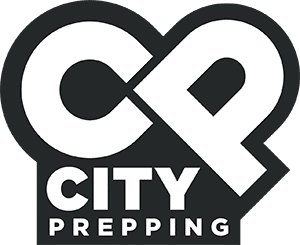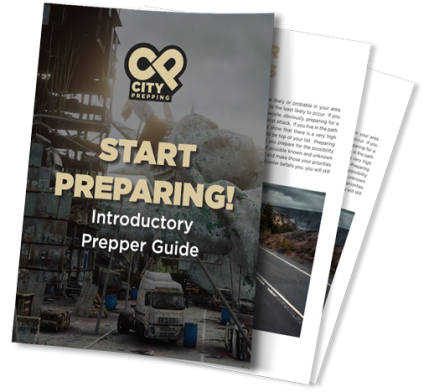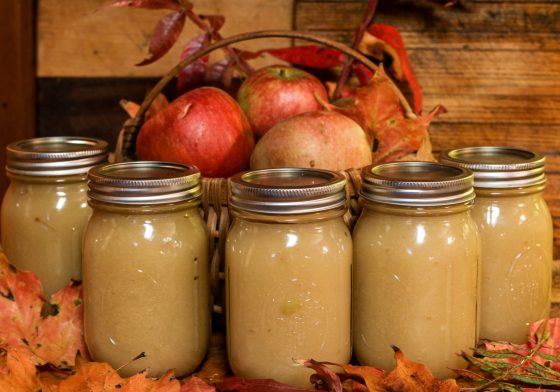- Barbara Frye
 American prosperity has primarily been built on a dual foundation of cheap land and labor. There have always been owners of large swaths of American land ever since English monarchs awarded land grants or gifts of land to individuals in perpetuity. Throughout all history, worldwide, ownership of land was equal to power. While your harvest of wheat or corn may succumb to a too early frost, the land remained stable year after year. It was, and always will be, a commodity. There’s only so much of it, and just so much of that which is inhabitable or usable. Land has intrinsic value, and every year that goes by, people require more and more of it to meet population demands.
The majority of the land being purchased, held, and passed down from generation to generation serves some other function as well. Much of it is either used for timber, ranching, grazing, mining, or farming. Much of Ted Turner’s land, for instance, is used as grazing land for over 50,000 head of Buffalo, which is also the largest private buffalo herd in the world. But these businesses are on top of the ownership of the land. Forests, ranches, and farmland all have one thing in common, and that is water. You might also want to take a look at my other video on Why The Rich Are Buying Up Water Rights? Despite the resources that can be brought to bear on the land, the real value is holding the land itself. Simply by holding it as others seek to acquire land, the value of it goes up.
In a world where economies can recede, even fail, currencies collapse, wars flare up, political disputes boil over, and pestilence can overwhelm a population, the land is still retaining its value. The landowner is maintaining their stature. The land is not correlated with the stock market or any other major asset class. The stock market can plummet a thousand points, but the land will only steadily increase in value. It has done so with few exceptions for at least the last three decades. Still, you won’t see Bill Gates or Jeff Bezos, or Ted Turner out on their land with a hoe and a bag of seeds. They aren’t farmers. 30% of these large farmlands are leased to real farmers, which squeezes their profit margins tighter. They put in all the sweat and shoulder all the risk, but it’s the landlord who is the only one guaranteed to profit.
Whether the land is cultivated for its resources, lease, or just held, it’s a guaranteed return on investment. With the average farmland acre price hovering around $3,160, it’s easy for the ultra-rich to sock money away by purchasing fertile acreage. The price a decade ago was around $2,000 an acre. That rate of return on just holding the land is higher than most returns on bonds, stocks, savings accounts, or even precious metals. If the owner can put a water pumping station on the land, a solar farm, a wind farm, or just lease it to someone else, they’re creating multiple revenue streams for themselves.
It is usually at this point that some are inclined to decry foreign investors as the problem, but those folks aren’t seeing the bigger picture. Currently, 30 million acres of American farmland are owned by foreign investors. That’s only just over 2 percent of all available American farmland. It’s not significant, but it’s not insignificant either. Those 30 million acres would equate to roughly the size of Pennsylvania. For its part, China owns 191,000 acres, a paltry 298 square miles of it. Where foreign nationals are allowed to own real estate, there are often restrictions on where they can buy and how much they can hold, so we needn’t fear foreign investors as much as we do the mega-rich citizens right here. Still, we should be cautious about ceding too much of the United States to the control of foreign investors.
The main reason the ultra-rich and investors are buying more and more land is for no other reason than that it holds value and increases in value just by holding onto it. No other asset class has such a guaranteed return. If you are sitting on millions, billions, or trillions of dollars, and you’re looking to get several of the tax breaks and benefits of land ownership, you don’t need to offshore your money in a hidden account somewhere anymore. There’s a new land rush right here in America.
MANY MOUTHS TO FEED
American prosperity has primarily been built on a dual foundation of cheap land and labor. There have always been owners of large swaths of American land ever since English monarchs awarded land grants or gifts of land to individuals in perpetuity. Throughout all history, worldwide, ownership of land was equal to power. While your harvest of wheat or corn may succumb to a too early frost, the land remained stable year after year. It was, and always will be, a commodity. There’s only so much of it, and just so much of that which is inhabitable or usable. Land has intrinsic value, and every year that goes by, people require more and more of it to meet population demands.
The majority of the land being purchased, held, and passed down from generation to generation serves some other function as well. Much of it is either used for timber, ranching, grazing, mining, or farming. Much of Ted Turner’s land, for instance, is used as grazing land for over 50,000 head of Buffalo, which is also the largest private buffalo herd in the world. But these businesses are on top of the ownership of the land. Forests, ranches, and farmland all have one thing in common, and that is water. You might also want to take a look at my other video on Why The Rich Are Buying Up Water Rights? Despite the resources that can be brought to bear on the land, the real value is holding the land itself. Simply by holding it as others seek to acquire land, the value of it goes up.
In a world where economies can recede, even fail, currencies collapse, wars flare up, political disputes boil over, and pestilence can overwhelm a population, the land is still retaining its value. The landowner is maintaining their stature. The land is not correlated with the stock market or any other major asset class. The stock market can plummet a thousand points, but the land will only steadily increase in value. It has done so with few exceptions for at least the last three decades. Still, you won’t see Bill Gates or Jeff Bezos, or Ted Turner out on their land with a hoe and a bag of seeds. They aren’t farmers. 30% of these large farmlands are leased to real farmers, which squeezes their profit margins tighter. They put in all the sweat and shoulder all the risk, but it’s the landlord who is the only one guaranteed to profit.
Whether the land is cultivated for its resources, lease, or just held, it’s a guaranteed return on investment. With the average farmland acre price hovering around $3,160, it’s easy for the ultra-rich to sock money away by purchasing fertile acreage. The price a decade ago was around $2,000 an acre. That rate of return on just holding the land is higher than most returns on bonds, stocks, savings accounts, or even precious metals. If the owner can put a water pumping station on the land, a solar farm, a wind farm, or just lease it to someone else, they’re creating multiple revenue streams for themselves.
It is usually at this point that some are inclined to decry foreign investors as the problem, but those folks aren’t seeing the bigger picture. Currently, 30 million acres of American farmland are owned by foreign investors. That’s only just over 2 percent of all available American farmland. It’s not significant, but it’s not insignificant either. Those 30 million acres would equate to roughly the size of Pennsylvania. For its part, China owns 191,000 acres, a paltry 298 square miles of it. Where foreign nationals are allowed to own real estate, there are often restrictions on where they can buy and how much they can hold, so we needn’t fear foreign investors as much as we do the mega-rich citizens right here. Still, we should be cautious about ceding too much of the United States to the control of foreign investors.
The main reason the ultra-rich and investors are buying more and more land is for no other reason than that it holds value and increases in value just by holding onto it. No other asset class has such a guaranteed return. If you are sitting on millions, billions, or trillions of dollars, and you’re looking to get several of the tax breaks and benefits of land ownership, you don’t need to offshore your money in a hidden account somewhere anymore. There’s a new land rush right here in America.
MANY MOUTHS TO FEED
 Snapping up farmland is also a good investment because the population continues to grow. There are more mouths to feed, and there is a limited amount of farmland. Every year, more and more farmland gets repurposed for housing or other purposes. Also, corporate farms make decisions based upon yield and the ability to sell their product. Selling their product to consumers in their own country isn’t a higher priority, and exports and tariffs can be tricky. It is easier for a corporation to take a loss and the write-off than to struggle to bring their harvest to market. It is easier for a company to repurpose its soybeans or corn for plastic, corn syrup, fiber, ethanol production, or some other than food option and take the profit than sometimes bringing that product to market.
The global population is forecasted to increase to 10 billion in the next 80 years. The World Bank has predicted that agricultural production will need to increase by almost 70% in the next 30 years to keep pace with demand. Farmland will continue to decrease while demand for food will rise. This is a guaranteed appreciation of one’s farmland acreage, and that’s why so many investors, from fund managers to the ultra-rich, are snapping up as much fertile American soil as their money can buy.
WHAT DOES THIS MEAN FOR YOU
YOUR FISCAL PROBLEMS
Snapping up farmland is also a good investment because the population continues to grow. There are more mouths to feed, and there is a limited amount of farmland. Every year, more and more farmland gets repurposed for housing or other purposes. Also, corporate farms make decisions based upon yield and the ability to sell their product. Selling their product to consumers in their own country isn’t a higher priority, and exports and tariffs can be tricky. It is easier for a corporation to take a loss and the write-off than to struggle to bring their harvest to market. It is easier for a company to repurpose its soybeans or corn for plastic, corn syrup, fiber, ethanol production, or some other than food option and take the profit than sometimes bringing that product to market.
The global population is forecasted to increase to 10 billion in the next 80 years. The World Bank has predicted that agricultural production will need to increase by almost 70% in the next 30 years to keep pace with demand. Farmland will continue to decrease while demand for food will rise. This is a guaranteed appreciation of one’s farmland acreage, and that’s why so many investors, from fund managers to the ultra-rich, are snapping up as much fertile American soil as their money can buy.
WHAT DOES THIS MEAN FOR YOU
YOUR FISCAL PROBLEMS
 From a financial perspective, so many ultra-rich and fund managers snapping up farmland means they have very little confidence in the other global asset classes making any significant rate of return in the coming years. Treasury bonds, considered one of the safest investments, are yielding around 2.24 percent, so they are not even keeping up with inflation over a long period. Many investors largely agree upon that the stock market is overvalued, and we are in a housing bubble right now. Inflation is on the rise. Everywhere you look, there are signs of shaky economies, and there is cause for concern on every horizon.
Given all those insecurities, investors turn to the absolute most stable thing they can invest in, and that’s land. Their mass exodus in this direction causes supply-demand pressure on all land, driving up land prices and netting them an instant return. For us, though, it represents a turning away from the standard safeguard mechanisms. Abandoning the treasury bond or investment in gold or silver will have unknown results because there has never been such an about-face from these economic, brake-pumping mechanisms. The resulting fiscal consequences of so much energy and money put into undeveloped or agricultural land sectors is unknown because we’ve never been in this situation before.
Also, from a fiscal perspective for you and more local to you, if you were thinking about buying an acre to farm or bug out to, it’s going to cost you even more now and in the coming months and years. Every acre that gets hoarded at the top drives up prices of this limited resource. If you live in a predominately agricultural area, that is to say, that your town is primarily supported by agriculture or the processing of agricultural goods, the decisions are being made by people not vested in the community or fiscal health of your town. What, then, are the effects of a Bezos or Gates simply deciding it is more profitable to not grow cotton or soybeans or corn or whatever on those 30,000 acres of farmland around your town because there is more money in leaving it fallow? How would that decision impact local jobs, stores, and businesses?
YOUR FOOD PROBLEMS
From a financial perspective, so many ultra-rich and fund managers snapping up farmland means they have very little confidence in the other global asset classes making any significant rate of return in the coming years. Treasury bonds, considered one of the safest investments, are yielding around 2.24 percent, so they are not even keeping up with inflation over a long period. Many investors largely agree upon that the stock market is overvalued, and we are in a housing bubble right now. Inflation is on the rise. Everywhere you look, there are signs of shaky economies, and there is cause for concern on every horizon.
Given all those insecurities, investors turn to the absolute most stable thing they can invest in, and that’s land. Their mass exodus in this direction causes supply-demand pressure on all land, driving up land prices and netting them an instant return. For us, though, it represents a turning away from the standard safeguard mechanisms. Abandoning the treasury bond or investment in gold or silver will have unknown results because there has never been such an about-face from these economic, brake-pumping mechanisms. The resulting fiscal consequences of so much energy and money put into undeveloped or agricultural land sectors is unknown because we’ve never been in this situation before.
Also, from a fiscal perspective for you and more local to you, if you were thinking about buying an acre to farm or bug out to, it’s going to cost you even more now and in the coming months and years. Every acre that gets hoarded at the top drives up prices of this limited resource. If you live in a predominately agricultural area, that is to say, that your town is primarily supported by agriculture or the processing of agricultural goods, the decisions are being made by people not vested in the community or fiscal health of your town. What, then, are the effects of a Bezos or Gates simply deciding it is more profitable to not grow cotton or soybeans or corn or whatever on those 30,000 acres of farmland around your town because there is more money in leaving it fallow? How would that decision impact local jobs, stores, and businesses?
YOUR FOOD PROBLEMS
 Even at its best, corporate farming reduces genetic diversity, lowers the nutritional value of food, and takes a toll on the land. When it goes perfectly right, there’s food-a-plenty at your store, albeit all the same and not very diverse. When one piece of the system fails– a storm, borders closing, a pandemic, a crop failure, the bird flu, a cyberattack, or anything similar– the bottom can fall out of the food supply chain. We are better ensured a steady and diverse food supply when local farms produce what our communities need. They grow or raise food based upon what our community needs are.
When you look at a country like China, it is referred to as an agri-import-dependent state, which means that it cannot grow all the food it needs to support its population. It’s easy to imagine that though the soybeans may be grown right in Kansas, and though people may need them for food or feed, or American manufacturers may need them, China might pay a better price. This could lead to a scenario where a corporate farm sells all their soybeans to China who then turns around and sells them at a higher price to American consumers. The farmer doesn’t reap any of those profits for his hard work. The American consumer incurs all of the added expenses in every product they use that utilizes soy in it– everything from the soles of shoes to oil, to asphalt sealer, and animal feed.
Any complicating factor can wreak havoc on farms when there is consolidation at the top. Sometimes, that complicating factor can simply be price gouging to raise prices. For instance, when Italy recently had a combination of early rains knocking buds off trees and the threat of an olive fly that forced an early harvest, it lowered yields. Olive oil pressers who had olives ready to press into the liquid olive oil didn’t rush to press those olives to fill the void. Instead, many just sat on their inventory of olives they did have, so the price for oil would go up. They artificially manipulated the market, and olive oil prices soared up 20% on low inventories. Corporations and investors overly in control of the food chain make decisions about food production based on profits, not your table. These decisions can cause shortages and disruptions in supply and can decimate whole communities.
YOUR WATER PROBLEMS
Even at its best, corporate farming reduces genetic diversity, lowers the nutritional value of food, and takes a toll on the land. When it goes perfectly right, there’s food-a-plenty at your store, albeit all the same and not very diverse. When one piece of the system fails– a storm, borders closing, a pandemic, a crop failure, the bird flu, a cyberattack, or anything similar– the bottom can fall out of the food supply chain. We are better ensured a steady and diverse food supply when local farms produce what our communities need. They grow or raise food based upon what our community needs are.
When you look at a country like China, it is referred to as an agri-import-dependent state, which means that it cannot grow all the food it needs to support its population. It’s easy to imagine that though the soybeans may be grown right in Kansas, and though people may need them for food or feed, or American manufacturers may need them, China might pay a better price. This could lead to a scenario where a corporate farm sells all their soybeans to China who then turns around and sells them at a higher price to American consumers. The farmer doesn’t reap any of those profits for his hard work. The American consumer incurs all of the added expenses in every product they use that utilizes soy in it– everything from the soles of shoes to oil, to asphalt sealer, and animal feed.
Any complicating factor can wreak havoc on farms when there is consolidation at the top. Sometimes, that complicating factor can simply be price gouging to raise prices. For instance, when Italy recently had a combination of early rains knocking buds off trees and the threat of an olive fly that forced an early harvest, it lowered yields. Olive oil pressers who had olives ready to press into the liquid olive oil didn’t rush to press those olives to fill the void. Instead, many just sat on their inventory of olives they did have, so the price for oil would go up. They artificially manipulated the market, and olive oil prices soared up 20% on low inventories. Corporations and investors overly in control of the food chain make decisions about food production based on profits, not your table. These decisions can cause shortages and disruptions in supply and can decimate whole communities.
YOUR WATER PROBLEMS
 As mentioned earlier, farms, forests, and ranching land all have water resources on them. While I have already addressed the ultra-wealthy buying up water and the reasons why in another video worth watching here, I have to put water resources in here when addressing what this buy-up of farmland means to you. While the possible disruptions to your food supply are hard to precisely predict, the water disruptions are easier to identify. As droughts continue and irregular weather patterns continue, water insecurity will become more frequent.
If there is a way to monetize and bet on anything, the rich on Wall Street will figure it out. Water is their latest monetization of our natural resources, and it could be an early stage of a more significant takeover. Even if you hold the mineral rights to the water below your property and you are tapped into a well at a decent depth, as aquifer levels are reduced by farming, industrial, or pumping operations in the same area, you would need to drill deeper and deeper to retain access to water. At between 15 and 30 dollars per foot average drilling cost, small-time landowners are quickly priced out of their own wells by their wealthier neighbors.
As preppers, we know that water is one of the most essential ingredients to our survival. The monetization of any resource can cause long-term problems for people. What if one of those billionaires manipulates the market by withholding or restricting the free flow of water? What if one of those banks or investment firms chooses to drive up the price of water or sell off the rights altogether to someone other than your municipality? What happens when a foreign investor holds your water resources? Suffice it to say, there are many complex problems associated with any one person controlling both the land and the water on it.
CONCLUSION
The ultra-rich and major global investors are snapping up American farmland at a never-before-seen pace. It’s partly because it is the most stable investment right now as many asset classes are overpriced, over-inflated, or experiencing a bubble. Land and the resources on and under that land in the form of minerals or water are a guaranteed rate of return for many wealthy investors. It would be a mistake to think that they are going into these purchases with the altruistic purposes of feeding the masses or even being a good steward of the land. As history has shown, they’ll put profits over people the first chance that they get. This can jeopardize anything from your economy to your food to your water supply.
What do you think? How are you preparing for this recent land grab? Are you planning to purchase land but seeing the price swiftly moving out of range for you?
As always, please stay safe out there.
As mentioned earlier, farms, forests, and ranching land all have water resources on them. While I have already addressed the ultra-wealthy buying up water and the reasons why in another video worth watching here, I have to put water resources in here when addressing what this buy-up of farmland means to you. While the possible disruptions to your food supply are hard to precisely predict, the water disruptions are easier to identify. As droughts continue and irregular weather patterns continue, water insecurity will become more frequent.
If there is a way to monetize and bet on anything, the rich on Wall Street will figure it out. Water is their latest monetization of our natural resources, and it could be an early stage of a more significant takeover. Even if you hold the mineral rights to the water below your property and you are tapped into a well at a decent depth, as aquifer levels are reduced by farming, industrial, or pumping operations in the same area, you would need to drill deeper and deeper to retain access to water. At between 15 and 30 dollars per foot average drilling cost, small-time landowners are quickly priced out of their own wells by their wealthier neighbors.
As preppers, we know that water is one of the most essential ingredients to our survival. The monetization of any resource can cause long-term problems for people. What if one of those billionaires manipulates the market by withholding or restricting the free flow of water? What if one of those banks or investment firms chooses to drive up the price of water or sell off the rights altogether to someone other than your municipality? What happens when a foreign investor holds your water resources? Suffice it to say, there are many complex problems associated with any one person controlling both the land and the water on it.
CONCLUSION
The ultra-rich and major global investors are snapping up American farmland at a never-before-seen pace. It’s partly because it is the most stable investment right now as many asset classes are overpriced, over-inflated, or experiencing a bubble. Land and the resources on and under that land in the form of minerals or water are a guaranteed rate of return for many wealthy investors. It would be a mistake to think that they are going into these purchases with the altruistic purposes of feeding the masses or even being a good steward of the land. As history has shown, they’ll put profits over people the first chance that they get. This can jeopardize anything from your economy to your food to your water supply.
What do you think? How are you preparing for this recent land grab? Are you planning to purchase land but seeing the price swiftly moving out of range for you?
As always, please stay safe out there. 





